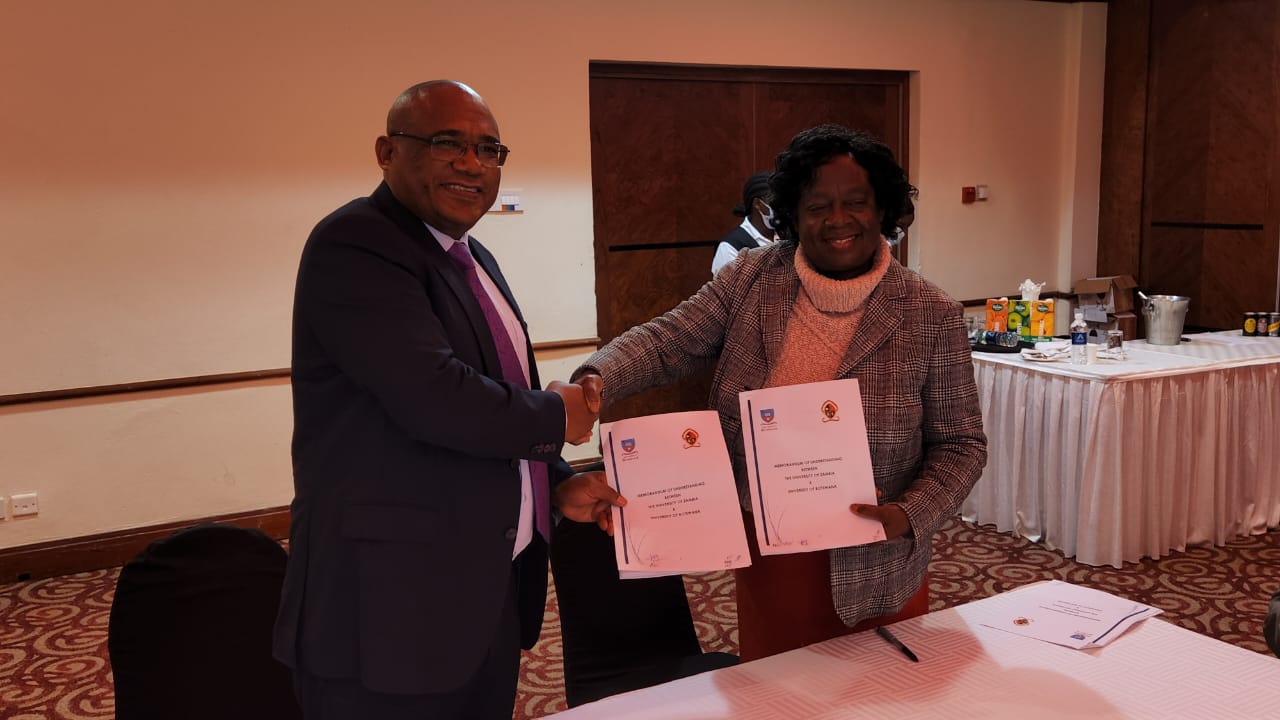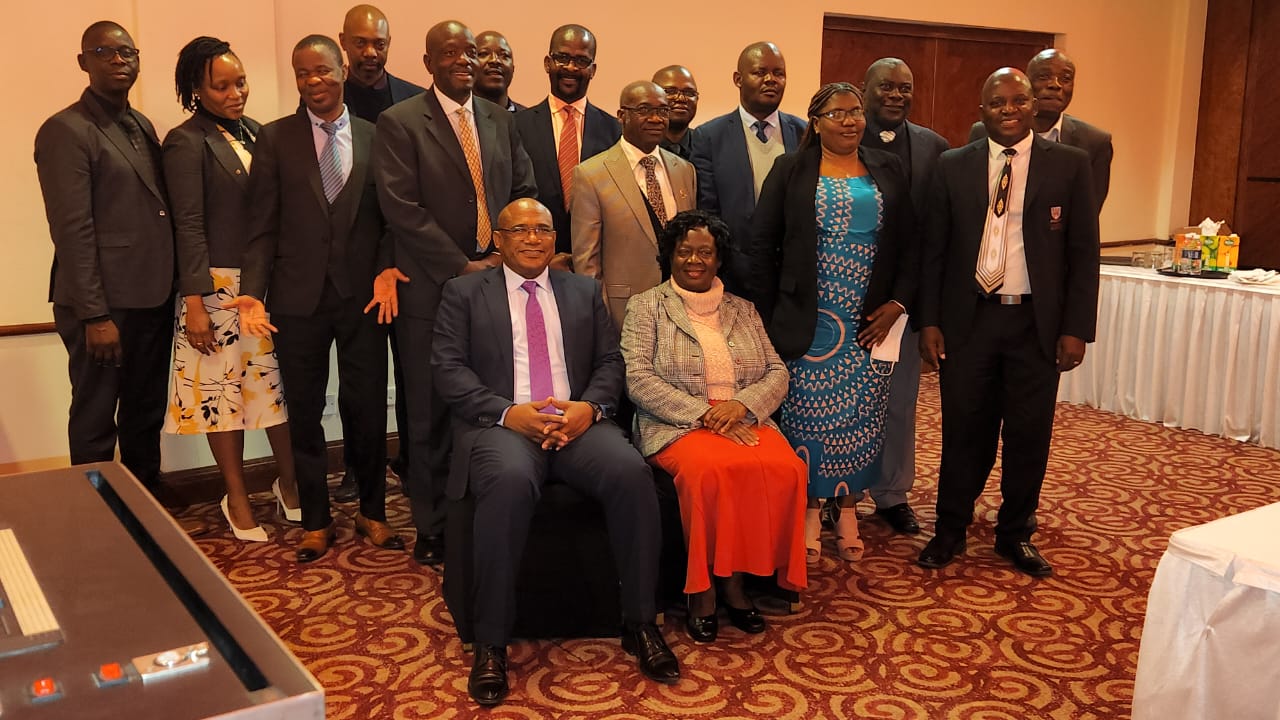UB Delegation Visit to UNZA Culminates with Signing of Memorandum of Agreement
 University of Botswana has signed a Memorandum of Agreement (MoA) with the University of Zambia (UNZA), paving way for collaborative support in various areas of mutual interest and benefit. The signing marked the culmination of week-long deliberations that covered vast areas that both universities are planning to undertake to benefit their countries.
University of Botswana has signed a Memorandum of Agreement (MoA) with the University of Zambia (UNZA), paving way for collaborative support in various areas of mutual interest and benefit. The signing marked the culmination of week-long deliberations that covered vast areas that both universities are planning to undertake to benefit their countries.
The MoA covers, among others, collaboration on staff and student exchanges. Further, the two universities will make financial provisions and avail more resources for agreed activities.
Speaking at a dinner organised by the University of Zambia, Vice Chancellor Professor David Norris, acknowledged the visit to Zambia as an enriching and inspiring experience. The experience gained from this trip will be utilized in building capability to improve service delivery, he noted.
Commenting on the deliberations, Acting Dean of the School of Graduate Studies, Professor Agreement Jotia, noted that the UNZA Graduate School of Business was a model of inspiration to the University of Botswana delegation.
The UNZA Graduate School of Business operates as an autonomous and self-sustaining entity and more like a business. The enterprise comprises lodges and other business ventures that fund most of the university’s operations besides contributing to the overall budget of the institution.
Professor Jotia further spoke about the on-the-spot admission of graduate students, a model he acknowledged served UNZA well and which UB should replicate.
 On distance education, Centre of Continuing Education (CCE) Acting Director, Professor Olekanye Thakadu, also reiterated that the visit to Zambia was an eye-opener especially on distance education. He admitted that direct and targeted marketing employed by UNZA Institute of Distance Education was successful and worth emulating.
On distance education, Centre of Continuing Education (CCE) Acting Director, Professor Olekanye Thakadu, also reiterated that the visit to Zambia was an eye-opener especially on distance education. He admitted that direct and targeted marketing employed by UNZA Institute of Distance Education was successful and worth emulating.
Summing up the deliberations, Professor Richard Tabulawa acknowledged that solutions to some of the challenges African universities faced were already available in those universities themselves. He observed that the visit to Zambia was fruitful in that it brought to the fore the realization that some African universities were ahead in addressing challenges such as student recruitment and registration.
UNZA has a robust Information and Technology system. Some of its programmes are developed inhouse to address emerging challenges. In addition, UNZA’s interfacing systems create synergies that close loopholes.
Professor Tabulawa highlighted that to that end, each unit or department within UNZA functioned as an income generating entity, thus reducing over-reliance on government subvention. He said it was impressive that even non-academic units were providing training services to the university’s stakeholders for a fee.
For her part, UNZA Vice Chancellor, Professor Annie Sikwibele, expressed her gratitude to the University of Botswana delegation. She said as neighbours they should work together to demonstrate that African universities were capable of providing solutions to challenges Africa universities faced.